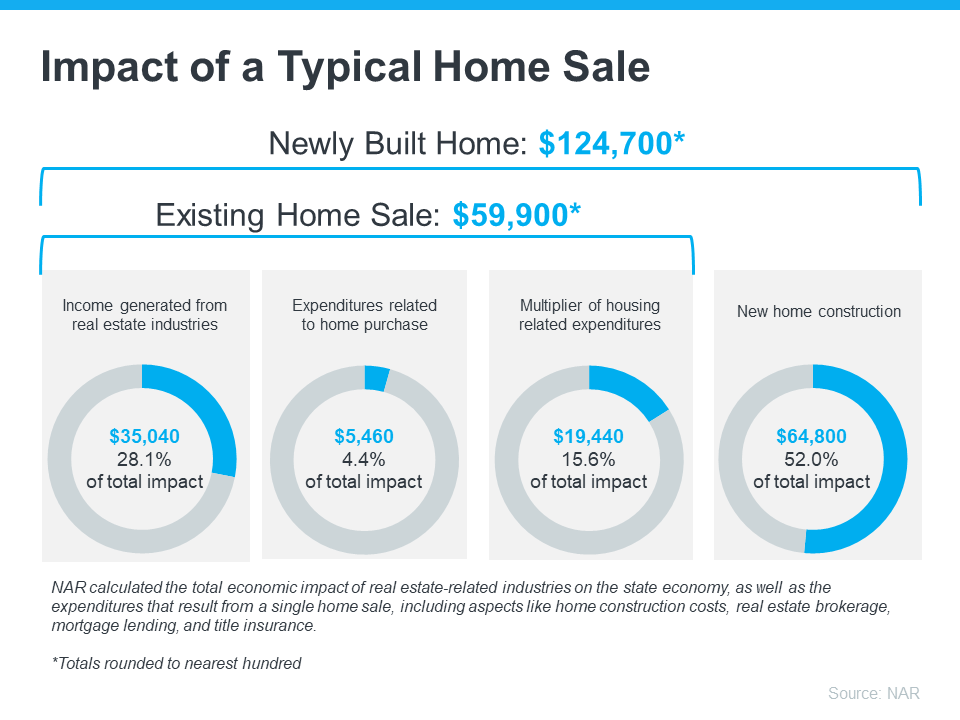
If you’re thinking of buying or selling a house, it’s important to know it doesn’t just impact you—it helps out the local economy and your community, too.
Every year, the National Association of Realtors (NAR) puts out a report that breaks down the financial impact that comes from people buying and selling homes (see visual below):

When a house is sold, it really boosts the local economy. That’s because of all the people needed to build, fix up, and sell homes. Robert Dietz, Chief Economist at the National Association of Home Builders (NAHB), explains how the housing industry adds jobs to a community:
“. . . housing is a significant job creator. In fact, for every single-family home built, enough economic activity is generated to sustain three full-time jobs for a year . . .”
It makes sense that housing creates a lot of jobs because so many different kinds of work are involved in the industry.
Think about all the people involved with selling a house—city officials, contractors, lawyers, real estate agents, specialists, etc. Everyone has a job to do to make your deal go through. So, each transaction is a big help to those who work and live in your community.
Put simply, when you buy or sell a home, you’re helping out your neighbors. So, when you decide to move, you’re not just meeting your own needs—you’re also doing something good for your community. Just knowing your move helps so many people around you can give you a sense of empowerment as you make your decision this year.
Bottom Line
The decision to buy or sell a home extends far beyond individual gain, profoundly impacting the broader community. Through the lens of both economic and social benefits, it becomes evident that real estate transactions play a pivotal role in shaping the fabric of neighborhoods and societies.
Economically, buying or selling a home stimulates local economies in multifaceted ways. Real estate transactions generate revenue for various stakeholders, including real estate agents, brokers, lenders, and service providers such as contractors, inspectors, and movers. Additionally, increased property values resulting from successful transactions contribute to a stronger tax base for local governments, supporting essential services and infrastructure development. Furthermore, the ripple effects of home sales extend to small businesses and retail establishments in the community, fostering economic vitality and growth.
Beyond financial considerations, buying or selling a home fosters social cohesion and community well-being. Homeownership often correlates with increased civic engagement and pride in one’s neighborhood. Homeowners are more likely to invest time and resources in community initiatives, volunteer efforts, and neighborhood improvement projects, fostering a sense of belonging and collective responsibility. Moreover, stable homeownership contributes to neighborhood stability, promoting safer streets, higher-performing schools, and enhanced quality of life for residents.
Ultimately, the benefits of buying or selling a home reverberate throughout the community, creating a positive feedback loop of economic prosperity and social harmony. Whether it’s supporting local businesses, strengthening the tax base, or fostering a sense of community pride, real estate transactions serve as catalysts for positive change. By recognizing the broader implications of these transactions, individuals can make informed decisions that not only benefit themselves but also contribute to the greater good of their community.
Every time a home is sold, it really helps out the local economy. If you’re ready to move, let’s get in touch. It won’t just change your life—it’ll also do a lot of good for the whole community.






 EN
EN
 ES
ES